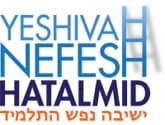The Pasuk says:
וַיְדַבֵֵּ֥ר אֱלֹ הִ֖ים אֶל־משֶֶׁ֑ה וַיֵּ֥אֹמֶר אֵ לִ֖יו אֲ נֵּ֥י יְהֹ וה
The Midrash points out that not only is this a double lashon (Hashem spoke to Moshe and said to him) but the 2 words have contradictory connotations. Vayidaber means speaking with strong language and can mean rebuke, while Vayomer is a softer type of speech. Which was Hashem speaking to Moshe with here? The Midrash explains that in the previous parsha Moshe had questioned Hashems plan displaying a lack of Emunah. Furthermore, Hashem had specifically told Moshe that the plan was that Pharos heart would be hardened and things would get tougher for Klal Yisroel before it got better. This arose the middos HaDin in Hashem against Moshe. However, Moshes questioning Hashem was only because he cared for Klal Yisroel, who were hurt by his actions of speaking to Pharo, he only had good intentions. This aroused in Hashem his Middos HaRachamim. Therefore, Hashem spoke to Moshe in booth languages, Din for his mistake, Rachamim for his good intentions, Vaydaber and Vayomer.
Whats striking is that the Rachamim didn’t cancel out the Din, Hashem used both. Often kids make mistakes and we try to understand their point of view, their intentions, through Rachamim. However, they still made a mistake, and still have to take responsibility for it. Just as important though (maybe more) is expressing and demonstrating that Rachamim, through actions and speech, that we understand their good intentions (though possible misguided) and are proud of them for it, they just need to channel their intentions properly and with guidance. It is important that when these type of situations occur to try as much as possible to respond as Hashem has modeled for us here: Simultaneous Din and Rachamim. It is difficult and requires creativity and balance (we cant lean too much on Din-they did mean well and might not understand, or too much on Rachamim-we cant excuse their actions for their intentions, they have to take responsibility or they wont learn). This is an ongoing struggle especially with teens, whose actions can be simultaneously amazing and terrible, or sometimes back-to-back. Hashem should give us Daas to know how to mechanech our kids and students proportionately.
Shavua Tov,
Rabbi Ari Deutscher MSW
Menahel

Leave A Comment